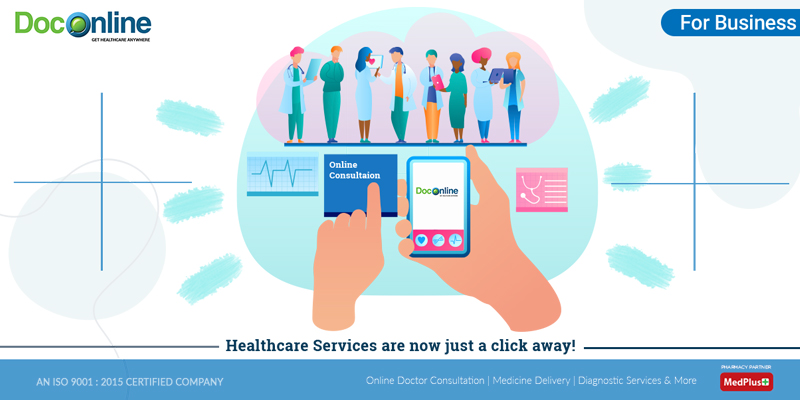The Future of Medicine: Discovering Subscription Based Healthcare Designs
Wiki Article
Navigating the Future of Medicine With Subscription-Based Medical Care Provider
As the health care industry evolves, subscription-based services arise as an essential model promising to reshape individual treatment delivery. With the possible to provide structured, affordable options with foreseeable prices and individualized attention, these services stand at the forefront of contemporary medical technology. As we consider their surge, one have to consider the implications of incorporating such systems into existing health care structures. What difficulties do they posture in terms of data protection and fair gain access to, and how might they redefine the patient-provider relationship? The response to these inquiries might essentially alter our approach to health care.Surge of Membership Medical Care
As medical care systems all over the world face increasing pressures from rising prices and need for services, the development of subscription-based medical care designs has emerged as a transformative trend. This cutting-edge approach is disrupting standard medical care distribution by providing a predictable, flat-rate settlement structure for clinical solutions. Rooted in the concepts of attendant medicine, subscription-based medical care allows service providers to concentrate on tailored individual care while all at once managing functional effectiveness.The increase of this design can be credited to several aspects. Technological developments have actually allowed much more seamless combination of treatment via telehealth and digital health and wellness records, assisting in the scalability of registration services. The enhancing customer demand for openness and predictability in medical care costs has actually driven the change towards this design. Subscription-based services commonly use straight access to healthcare experts, which can minimize the management burdens connected with insurance cases and compensations (subscription based healthcare).
This model is getting traction among varied doctor, from key treatment doctors to specialized clinics, by straightening monetary rewards with continual and preventive care. By changing the emphasis from volume to value-based care, subscription medical care has the possible to reshape the landscape, fostering a much more patient-centered and sustainable technique to wellness management.
Benefits for Patients

Additionally, subscription-based solutions frequently stress preventative treatment, encouraging routine check-ups and wellness testings. This aggressive strategy can bring about early discovery of health issues, possibly boosting results and lowering lasting healthcare prices for people. Such models generally offer transparent prices, allowing patients to better understand their healthcare expenditures and avoid unexpected medical bills.
The customized nature of subscription-based health care additionally improves client experience. Patients can obtain customized healthcare plans that fit their specific requirements, fostering a more patient-centric strategy. This customization can lead to better person complete satisfaction and adherence to treatment plans. Furthermore, registration solutions typically integrate wellness programs, supporting patients in maintaining total health and wellness and well-being. Eventually, these benefits collectively contribute to a much more reliable, cost-efficient, and patient-friendly medical care experience.
Technology's Role in Transformation

Man-made knowledge (AI) plays a vital duty in predictive analytics, helping in very early medical diagnosis and customized therapy plans. AI algorithms evaluate vast datasets to determine patterns that may be overlooked by human monitoring, hence boosting clinical decision-making. Digital health and wellness documents (EHRs) streamline person info management, making certain continuity and comprehensibility of care across various services and suppliers.
Blockchain technology enhances data protection and privacy, crucial for keeping client count on in electronic systems. It makes it possible for safe and transparent purchases of medical information, making sure that sensitive information remains safeguarded. With the assimilation of artificial intelligence and AI, blockchain can automate complex medical care processes, reducing administrative problems.
Obstacles and Factors To Consider
While technology drives the abilities of subscription-based healthcare solutions, it also introduces a set of difficulties and factors to consider that should be dealt with to ensure effective execution. One significant challenge is the equitable ease of access of these services.Data privacy and security represent an additional essential factor to consider. Subscription-based solutions commonly involve the collection and storage of large amounts of personal wellness info. Service providers have to comply with stringent information defense laws to maintain individual trust fund and protect against unapproved gain access to, which might bring about significant honest and legal consequences.
As health care needs progress, preserving a cost-efficient balance in between registration costs and service quality is vital to stop person dissatisfaction and attrition. Addressing these challenges is crucial as subscription-based healthcare services proceed to progress and broaden.
Future Effects for Medicine
Subscription-based medical care services are poised to significantly influence the future landscape of medicine by improving exactly how treatment is accessed go to this website and provided. These designs offer the prospective to equalize medical care accessibility, supplying patients with more prompt and tailored treatments. By leveraging technology, such as telemedicine and information analytics, subscription solutions can facilitate continual surveillance and tailored health and wellness monitoring, thus boosting end results and decreasing the burden on conventional healthcare systems.
As these services gain grip, they can stimulate a shift towards preventative care, stressing the relevance of very early detection and administration of persistent problems. This positive strategy may ultimately decrease healthcare expenses by minimizing the demand for expensive therapies developing from late-stage illness monitoring. Membership designs provide a scalable remedy to resolve variations in medical her comment is here care access, specifically in underserved or rural populations.
Nevertheless, the change towards subscription-based designs necessitates attending to honest and governing considerations, including information personal privacy and equitable gain access to. As the industry progresses, collaborative initiatives in between policymakers, innovation designers, and medical care suppliers will be crucial to developing robust structures that guard individual interests while fostering advancement. Ultimately, these solutions assure to add dramatically to a more reliable, patient-centered health care ecological community.

Conclusion
Subscription-based medical care solutions stand for a considerable advancement in the clinical area, using predictable costs and personalized care that improve access and focus on precautionary procedures. Technological innovations, such as telemedicine and AI-driven analytics, facilitate tailored client experiences, enhancing overall health and wellness end results. However, challenges such as information personal privacy and equitable access should be resolved to make view it now sure the prevalent advantages of these solutions. As the medical care landscape evolves, subscription versions are poised to play an important function fit the future of medicine.As the healthcare market advances, subscription-based services arise as a crucial model promising to reshape patient care delivery.As health care systems around the globe face increasing pressures from rising costs and demand for solutions, the advent of subscription-based health care designs has emerged as a transformative trend (subscription based healthcare).With the increase of subscription-based health care versions improving conventional healthcare delivery, clients are beginning to experience significant benefits from this ingenious technique. As health care requires develop, preserving a cost-efficient equilibrium in between registration costs and solution quality is crucial to protect against patient dissatisfaction and attrition.Subscription-based medical care services are poised to considerably affect the future landscape of medicine by improving how treatment is accessed and delivered
Report this wiki page